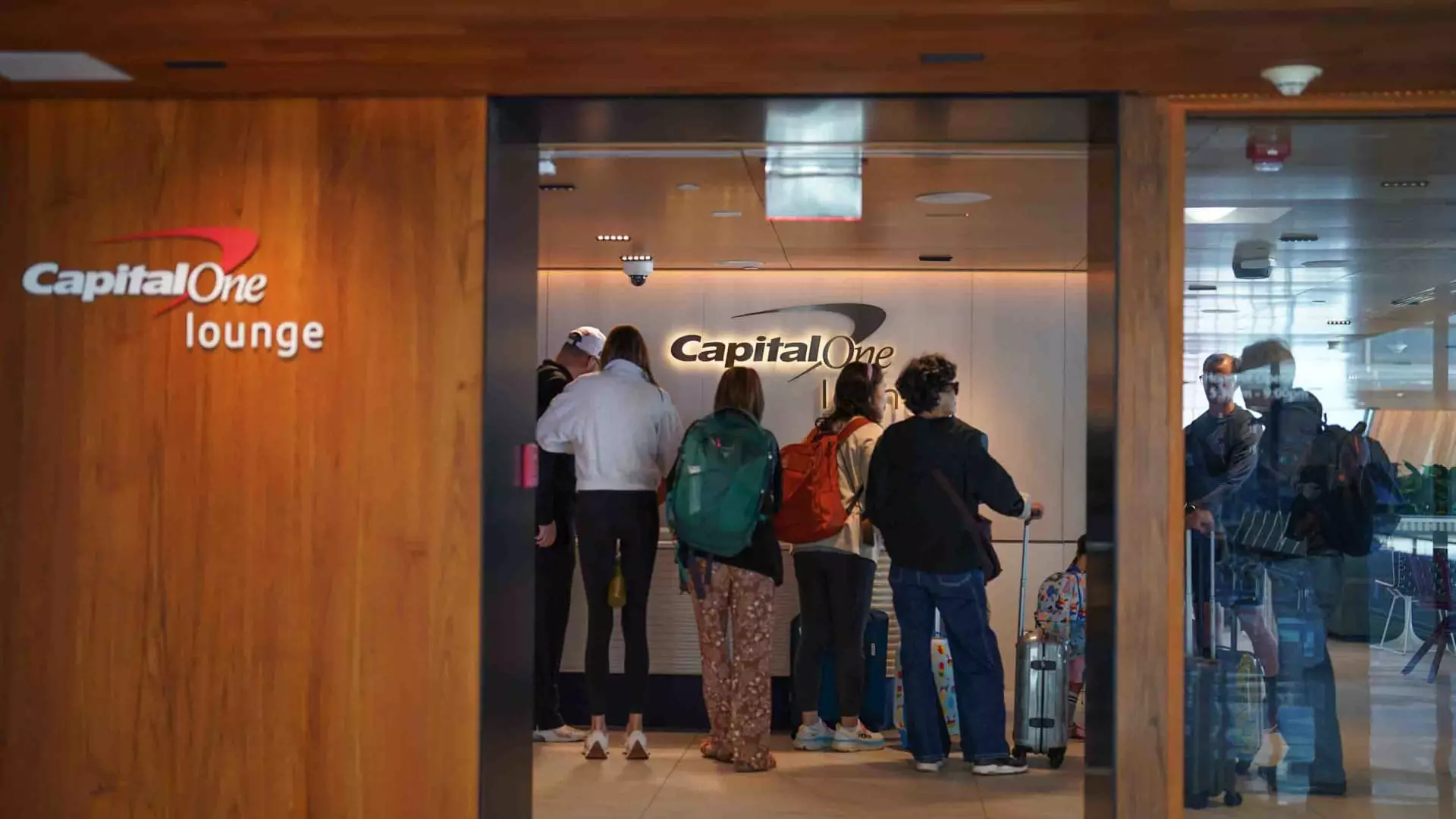Air travel has evolved into a complex web of luxury and accessibility, but with the recent changes by Capital One, the exclusivity surrounding airport lounges has taken a sharp turn toward the elitist. As airplane tickets become more budget-friendly, the cost of enjoying the comfort of airport lounges is spiraling out of reach for many families. This shift raises crucial questions about who gets to enjoy the benefits of air travel and at what cost.
A Growing Divide: The Cost of Comfort
In a desperate attempt to address overcrowding, Capital One has implemented a series of fees that transform airport lounges from a communal escape into a realm reserved for the affluent. Effective February 1, cardholders of the Venture X products will no longer enjoy complimentary guest access. Instead, those wishing to bring family or friends along will have to fork over an annual fee of $125 for each additional cardholder—a financial burden that can quickly accumulate. Beyond the base fees, casual travelers will face $45 for each adult guest and $25 for minors per visit. This strategy is more than a mere change in policy; it signals a troubling trend towards monetizing even the smallest token of luxury in travel.
A noticeable paradox arises here: budget airline tickets make flying more attainable, yet the social fabric of air travel is being noticeably frayed. The high costs associated with airport lounges are emblematic of a broader issue—travel is gradually becoming class-based. The psychological impact of a cramped airport terminal is bad enough; the knowledge that certain privileges can only be accessed through substantial financial expenditure adds insult to injury. The very essence of travel—a shared experience across cultures—is being stratified, leaving common vacationers on the outside looking in.
The Illusion of Exclusivity
Capital One’s decision echoes a sentiment we’ve heard from companies like American Express and JPMorgan Chase, pushing up the thresholds for access on the misguided premise that exclusivity equals luxury. The statement that it “is important to maintain great airport lounge experiences” reads more like corporate jargon than genuine concern for customer satisfaction. This is nothing more than a shallow veneer of care wrapped around a drive for profit.
Instead of addressing the underlying issue—overcrowding due to increased demand—Capital One is simply narrowing the access gates. The logic is flawed: If lounges are now overcrowded due to their growing popularity, should the solution not involve expanding services rather than gatekeeping access to them? The irony is rich; in an age where inclusivity is celebrated, the message sent to the average traveler is clear: “If you want comfort while you travel, prepare to pay dearly for it.”
An Industry Captured by Its Own Success
Experts like Henry Harteveldt refer to Capital One as an “underdog” in the realm of travel rewards, but its recent directives signal it is becoming just as elitist as its established competitors. The lounges cited in their fragmentary existence merely highlight a service model eroding faster than the comfort it promises. With newly raised fees mirroring those of their competitors, it begs the question—are these lounges truly beneficial, or are they just a gilded cage for the financially comfortable?
Airlines like Delta and American also echo this dilemma, raising prices while simultaneously expanding lounge spaces. This juggling act of offers and restrictions creates an environment that not only alienates the average traveler but also risks alienating loyal customers. When “luxury” becomes a barometer for who can comfortably travel, those without deep pockets are left to navigate airport terminals that increasingly resemble crowded waiting rooms rather than inviting havens.
As the landscape of travel evolves, the divide between comfort and accessibility grows dangerously thin. The corporate restructuring of benefits under the guise of “exclusive experiences” is more than a misguided move; it’s a symptom of a society that rewards the ability to pay more rather than the spirit of adventure that travel embodies.
By allowing financial barriers to dictate the quality of experiences in travel, companies are fostering discontent among average travelers seeking enjoyment in their journeys. The vision of universal accessibility in air travel is overshadowed by these barriers, leading us to ponder—at what point do we stop compromising the joy of travel in favor of corporate greed?

